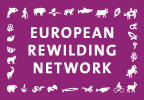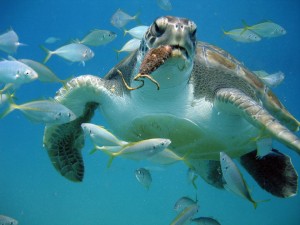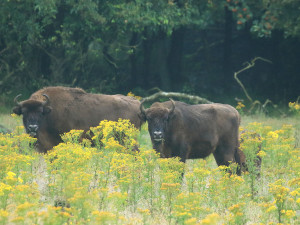Rewilding Europe is delighted to welcome three new members (from Spain, Bulgaria and the Netherlands) to the European Rewilding Network. Displaying impressive growth since its launch at WILD10 in Salamanca in October 2013, the network now comprises 53 members from 25 European countries (including Rewilding Europe’s eight operational areas).
Rewilding Europe is part of a burgeoning pan-European rewilding movement which has seen many impressive and inspiring initiatives develop over recent years. With rewilding-related projects continuing to multiply and flourish across the continent, the objective of the European Rewilding Network (ERN) is to connect, support and strengthen them. It is therefore hugely gratifying to witness its continued expansion.
 The ERN operates on a stronger together philosophy, promoting rewilding as a conservation approach. Members meet regularly – usually via online based seminars – to share knowledge, insight and examples of best practice. Most members are currently working on the large-scale rehabilitation of natural processes in different habitats such as rivers, forests and mosaic landscapes, the development of nature-based enterprises, and the reintroduction of locally extinct or endangered key wildlife species.
The ERN operates on a stronger together philosophy, promoting rewilding as a conservation approach. Members meet regularly – usually via online based seminars – to share knowledge, insight and examples of best practice. Most members are currently working on the large-scale rehabilitation of natural processes in different habitats such as rivers, forests and mosaic landscapes, the development of nature-based enterprises, and the reintroduction of locally extinct or endangered key wildlife species.
The ERN’s trio of fresh faces are keen to share their expertise, and look forward to connecting with and learning from other network members. Here is a little background information on each of these three valuable projects.
PROYECTO M.A.R.E.S. (Tenerife, Spain)

PROYECTO M.A.R.E.S. (Manejo de Áreas Reservadas y Ecosistemas para la Sostenibilidad / Reserved Areas Management and Ecosystems for Sustainability) is working to restore the subtidal ecosystem in Tenerife’s El Puertito de Adeje Bay.
The Sustainable Oceans Alliance, a global NGO, is collaborating with a local dive centre to restore the balance of the marine ecosystem in the bay by eliminating and controlling the invasive long-spined sea urchin population. This has seen the algal cover restored in the bay, which in turn has led to the comeback of many species, such as juvenile green turtles and the unique and endangered angel shark. Puertito de Adeje hosts one of only 4-5 juvenile green turtle colonies in Europe, and is the first marine microreserve in Spain trying to use the concession of the marine public domain to establish a stewardship project.
Dragoman Marsh Karst Complex Restoration Project (Bulgaria)
One of just a handful of similar habitats on the Balkan Peninsula, the Dragoman Marsh Karst Complex is unique in Bulgaria. The complex consists of limestone hills, with the depressions between them boasting biodiverse wetlands. Many of these have been adversely affected by anthropogenic activity.
Thanks to the efforts of the Balkani Wildlife Society, a Bulgarian NGO, the Dragoman Marsh Karst Complex was declared a Ramsar site in 2011. While many wildlife species have already returned to the area, many local wetlands (the Dragoman and Aldomirovtsi Marshes, wet meadows and fishponds) still suffer from drainage, poor management, contamination and eutrophication, and therefore need further restoration. The surrounding grasslands, which contain many endemic and rare species, also require on-site management. This project is now working to restore the natural wetlands, grasslands and forest ecosystems of the area, together with their associated flora and fauna, as well as focusing on the environmental education and active participation of local stakeholders.
European bison introduction in the Veluwe National Park (The Netherlands)

Following significant preparatory work, including the negotiation of agreements with local stakeholders, this project saw a small group of European bison introduced to a first pilot site of 400 ha in the Veluwe nature reserve in the Netherlands in 2016. The first four bison that were brought here are all part of the European Wildlife Bank. A special advisor to Rewilding Europe since 2010, Princess Laurentien of the Netherlands, officially opened the project in the Veluwe area in June 2016.
Playing an important role in the conservation of the European bison, the project is allowing this endangered animal to roam free and increase in numbers, thereby boosting the beneficial impact of natural grazing (which is being monitored) in the park. In addition to its conservational aspect, the project is also developing nature-based tourism, with guided excursions offering the Dutch public and overseas visitors a unique opportunity to witness Europe’s largest land mammal.
Rewilding Europe encourages all rewilding initiatives to apply for membership of the ERN. Please view this page for more information on application.
